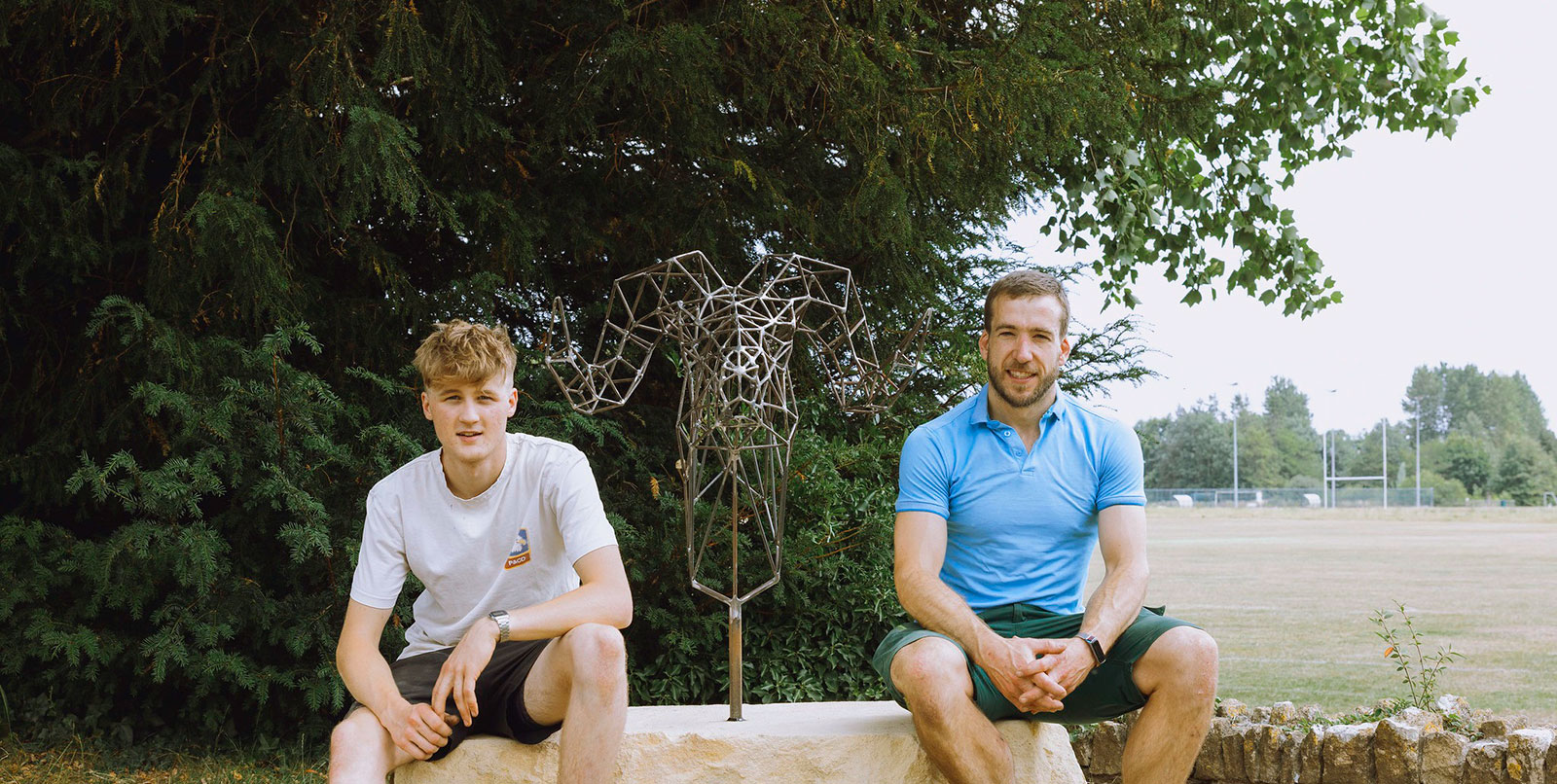University unveils stunning new sculpture to celebrate its 180th anniversary

25 July 2025
A sculpture of a ram’s head – made from steel rods recycled from old farm machinery by a young arts student from Hay on Wye – has been unveiled to mark the 180th anniversary of the Royal Agricultural University (RAU).
Seventeen-year-old Harlan Beales, who is currently studying for an extended diploma in Art, Design and Creative Practice at Hereford College of Arts, designed the sculpture, which has been named Aries, in tandem with former RAU student Will Carr before fabricating it by himself.
Aries was recently unveiled by RAU Vice-Chancellor Professor Peter McCaffery at a special lunch held at the Cirencester-based University which was founded in 1845 as the first agricultural college in the English-speaking world.
Harlan explained: “Will and I worked together on the design - he was able to make 3D projections and I made two paper models to get the scale right. I used Will’s workshop, getting guidance from Will and his fabricator at key points during the build.
“It is made from 6mm steel rods which Will had on his farm. Our initial plan was to make it using old bits of farm machinery and plough parts, but it looked so beautiful when we’d just welded the rods that we decided to leave it as it was.
“It has been amazing for me to have been involved with this. I’ve made smaller pieces before but this is the first large scale sculpture I’ve made. I’m excited that it will be at the RAU forever! My aunt lives in Cirencester so I can visit the sculpture whenever I come to see her.”
Will Carr, who had previously studied Civil and Environmental Engineering at Nottingham University, joined the RAU in 2015 to study for a Graduate Diploma in Agriculture before taking on his family’s 200-hectare mixed, arable, and beef farm in the village of Weobley near Hereford.
Alongside running the farm, Will has made a successful sculpture business, employing two people, and has sold sculptures across the world, including to the United States and Australia, and public sculptures across the UK.
In 2015 he made a Barley Ears sculpture for the RAU’s 170th anniversary which now stands overlooking the University’s Bathurst Lawn.
He said: “I felt very honoured to be asked to make another piece for the RAU after the success after the Barley Ears which I made for the University’s 170th, and this time it was great to be able to work alongside Harlan – we worked really well as a team.
“For the last six years I have been mainly concentrating on kinetic sculptures, that move in the wind, and more abstract sculptures so it was really nice to have the opportunity to go back to a more figurative style.
“The joined metal bars of Aries symbolise the interconnected mesh of human brains coming together, very like at this University, where information is shared making a joint neural network.”
RAU Vice-Chancellor Professor Peter McCaffery said: ““As we celebrate our 180th anniversary we ae immensely proud of the contribution our 17,000+ alumni have made as leaders, entrepreneurs and innovators to agriculture and the land-based sector.
“The Aries sculpture is a fitting tribute to the creativity, ingenuity, and commitment to sustainability that characterises our students today.”
Originally established in 1845 as the Royal Agricultural College, the first agricultural college in the English-speaking world and with just 25 students, the Royal Agricultural University gained its university status in 2013.
To celebrate its 180th anniversary, the institution - which now has around 1,100 students at its Cirencester campus as well as more than 3,000 studying worldwide with its many international partners - has a calendar of events taking place throughout the year including a series of special free public lectures, the opening of the University’s new £5.8m land laboratories, a Community Open Day, and a global online party for the University to celebrate with its international partners.
For more details of all the RAU’s 180th anniversary events, and to book a place at one of the 180th anniversary free public lectures, please visit https://www.rau.ac.uk/about-rau/why-rau/180-years.